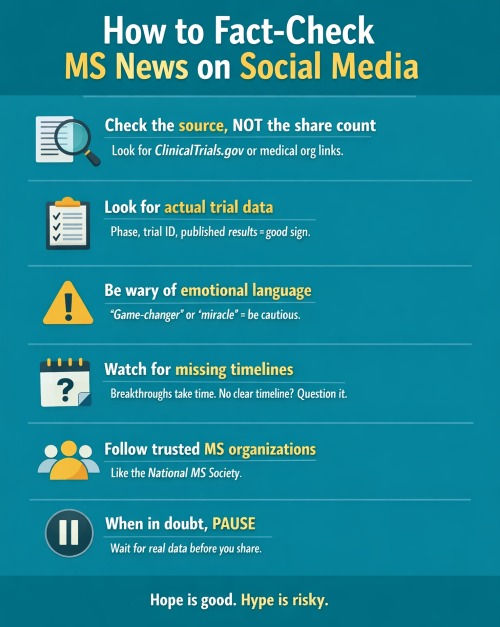Navigating MS in the Workplace: Advice on disclosing your diagnosis, requesting accommodations, and managing symptoms while working.
- Joe Weber

- Sep 19, 2024
- 3 min read

Navigating life with multiple sclerosis (MS) can be challenging, especially when it comes to the workplace. Balancing the need for accommodations, deciding whether to disclose your diagnosis, and managing symptoms while working are all crucial aspects to consider. Here's how to approach each of these areas to create a supportive and productive work environment.
Disclosing Your Diagnosis
Deciding whether to disclose your MS diagnosis to your employer is a personal choice. Here are some factors to consider:
It's important to note that you do not have to disclose your diagnosis unless you want to for peace of mind or it affects your output. For me, only select people know, my condition doesn't warrant telling HR or others, yet. Although, if any of them are reading this, they know now.
Understand Your Rights: Familiarize yourself with the Americans with Disabilities Act (ADA). This legislation protects you from discrimination and ensures that you have the right to reasonable accommodations.
Weigh the Pros and Cons: Disclosing your diagnosis can lead to a supportive work environment where you can request necessary accommodations. However, some may worry about potential stigma or bias.
Choose the Right Time: If your symptoms are impacting your work, it might be time to have a conversation with your employer. Choose a moment when you can have an open and uninterrupted discussion.
Prepare for the Conversation: Be ready to explain what MS is, how it affects you, and what accommodations you might need. Focus on how these adjustments can help you remain productive and contribute to the team.
Requesting Accommodations
Once you've decided to disclose your diagnosis, it's important to know how to request accommodations effectively:
Identify Your Needs: Consider which aspects of your job are most affected by your symptoms. This could include fatigue, mobility challenges, or cognitive changes.
Know Your Options: Accommodations can vary widely, from flexible work hours and ergonomic workstations to assistive technology and telecommuting options. Research what might be most helpful for your situation.
Document Your Request: When you make your request, do so in writing. This provides a record of the conversation and helps clarify your needs. Be specific about how the accommodation will help you perform your job duties.
Collaborate with Your Employer: Work with your employer to find a solution that works for both you and the company. Be open to brainstorming different accommodations that can make your work environment more accessible.
Managing Symptoms While Working
Managing MS symptoms at work requires planning and proactive strategies. Here are some tips to help you maintain productivity and well-being:
Pace Yourself: Break tasks into smaller steps and take regular breaks to avoid overexertion. Use productivity techniques like the Pomodoro method to maintain focus while allowing time for rest.
Stay Organized: Use tools like planners, task lists, and reminders to keep track of deadlines and tasks. This can help manage cognitive symptoms such as memory lapses or difficulty concentrating.
Prioritize Self-Care: Incorporate self-care into your daily routine, even at work. This could mean taking a short walk during lunch, practicing mindfulness exercises, or stretching at your desk.
Utilize Assistive Devices: Don't hesitate to use tools that can help you work more comfortably, whether it's an ergonomic chair, voice recognition software, or screen magnification tools.
Creating a Supportive Work Environment
Fostering an inclusive work environment benefits everyone. Encourage open communication with your employer and colleagues about how they can support you. This can lead to a more understanding and flexible workplace, making it easier for you to manage your MS while continuing to excel in your role.
Navigating MS in the workplace is about finding a balance that allows you to manage your health while maintaining your career. By understanding your rights, requesting appropriate accommodations, and implementing strategies to manage your symptoms, you can create a work environment that supports your needs.




Comments